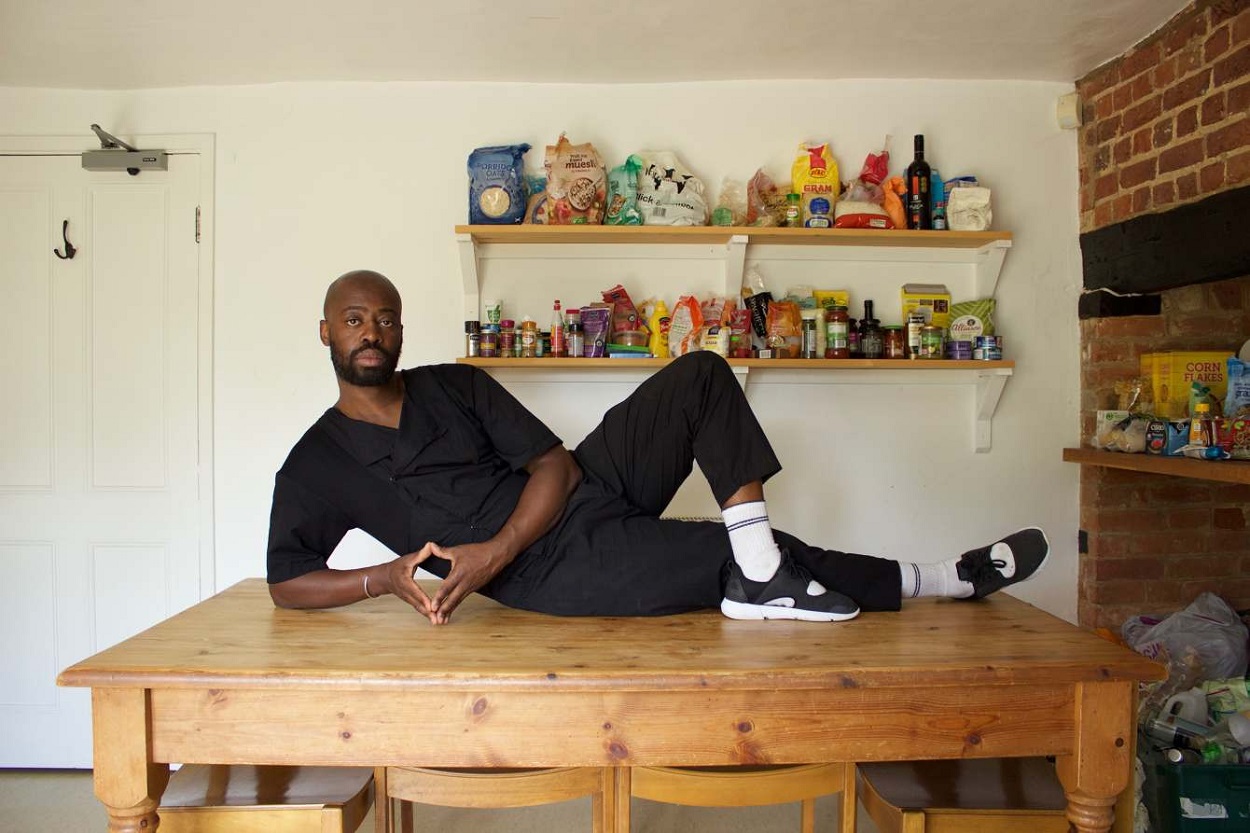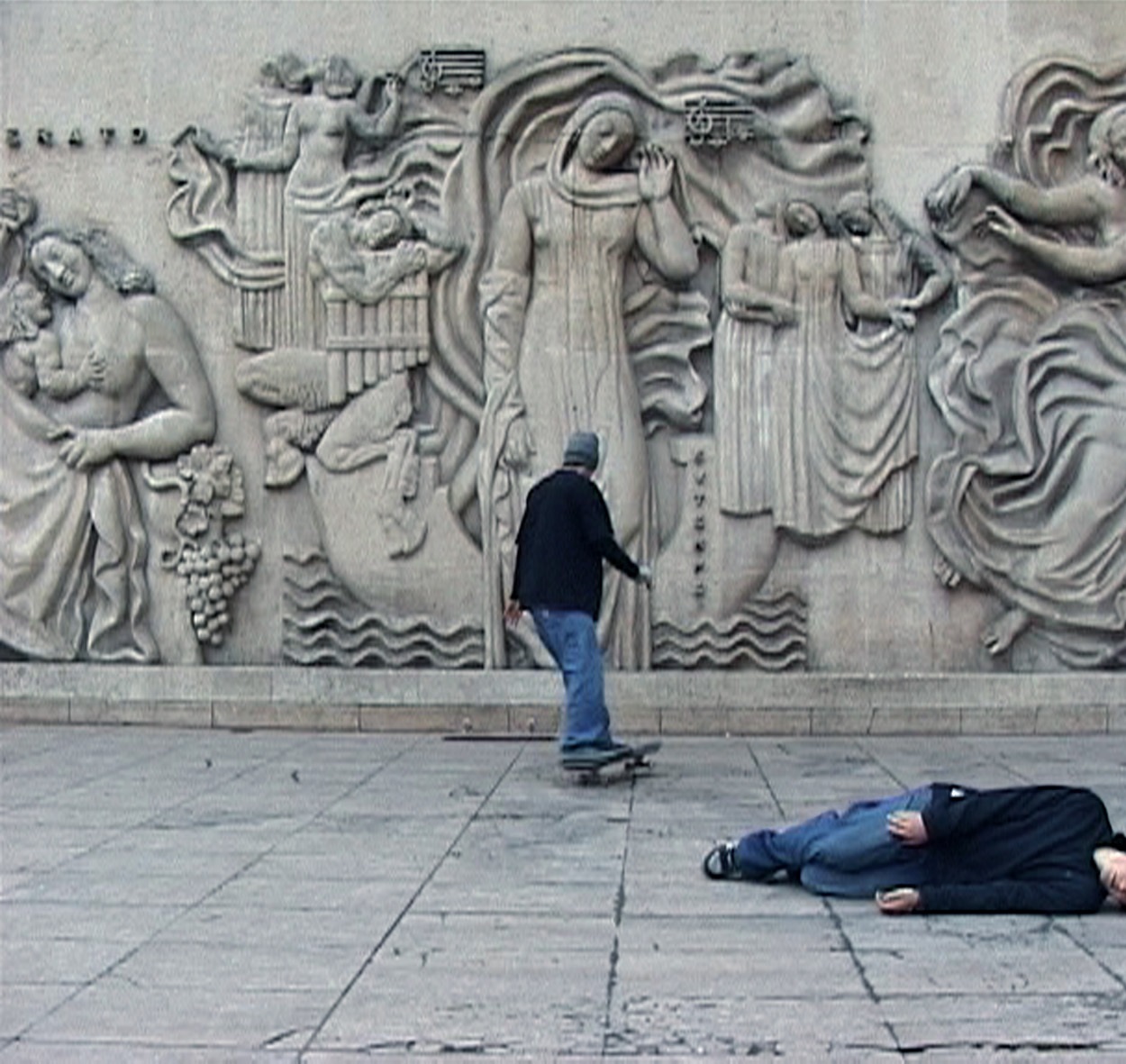 Harold Offeh, from the series “Lounging” (2017-2020).
Harold Offeh, from the series “Lounging” (2017-2020).
Nashashibi/Skaer, Why Are You Angry? (2017).16 mm film. 18 minutes.

Kinkaleri, WEST (2001-2008.) Durational performance and video. 6 minutes.

Teatro da Vertigem in collaboration with Nuno Ramos, Marcha à ré [Reverse Gear] (2020). Video

Screen shot shortly after Harold Offeh’s webcam performance of ‘Lounging’ in front of Teddy Pendergrass lounging in the background.
Being Horizontal: Vulnerability, Interdependence and Resistance
Featuring films by Nashashibi/Skaer, Teatro da Vertigem, and Kinkaleri, a performance by Harold Offeh, and a conversation with Felicity Callard
Curated by Nora Heidorn
Event presented in the series Confabulations: Art Practice, Art History, Critical Medical Humanities
9th February 2022
The standard enlightenment representation of the human body is of a singular, upright, able-bodied man, gazing forward. Starting from a subjective and partial selection of contemporary artworks and research images, this curatorial project wants to pay caring attention to images of reclined bodies.
We encounter reclined bodies in different situations in our visual cultures, including persons sleeping or resting, having sex, the unwell, injured or deceased. Visual tropes include the reclined nude, the fallen soldier, the psychoanalysis patient, and the birthing woman. Being horizontal, and especially being looked at and imaged in positions of recline, is often associated with feminised and/or racialised powerlessness. Deliberately assuming a horizontal position in front of others can also, as the complex works grouped in this project reveal, challenge, subvert, and politicise dynamics of vulnerability and power.
Inspired by Adrianna Cavarero’s Inclinations: A Critique of Rectitude, “Being Horizontal” pays critical and caring attention to images of reclined bodies and explores what individual and collective orientations and movements out of the vertical plane and into varying degrees of incline might indicate about being in relation, about interdependency and care. For example, how might the simple but charged acts of reclining, lounging, collapsing, or reversing be reimagined as critiques of the neoliberal drives for efficiency, productivity, speed, and independence?
An interview about this project and the wider research was published by NERO editions in June 2022. With thanks to Giulia Crispiani for the questions. Following this screening, I curated the exhibition Being Horizontal at Project Arts Centre, Dublin.
Back